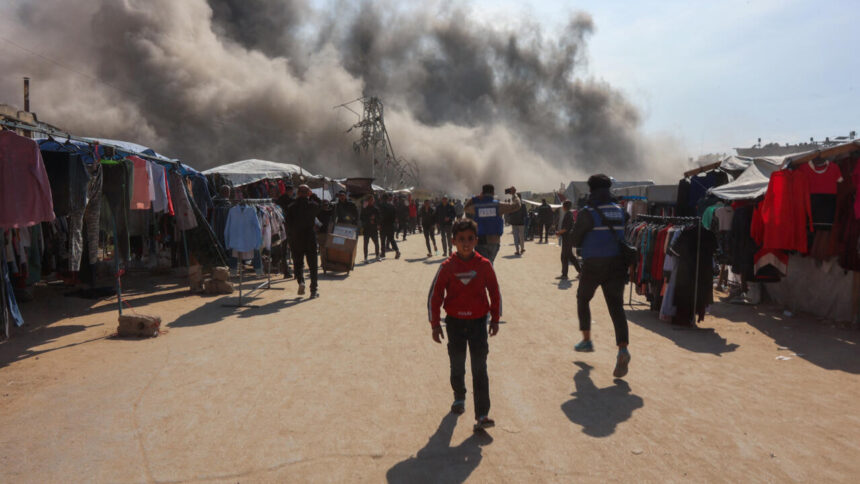US Allies Challenge Trump’s Stance on Gaza
The geopolitical landscape surrounding the Israeli-Palestinian conflict is experiencing significant shifts as Canada joins forces with France and the United Kingdom to advocate for the recognition of a Palestinian state. This diplomatic move stands in contrast to the current administration’s unwavering support for Israel, presenting a complex scenario for the future of Gaza under President Trump’s leadership.
As international pressure mounts, questions arise about the long-term strategy the Trump administration has for Gaza. While the United States has maintained a solid alliance with Israel, allies in the West are signaling their intent to promote a two-state solution, a pivotal concept that envisions a sovereign Palestinian state existing alongside Israel.
Recent Developments in Gaza
In recent days, reports from Gaza reveal a deteriorating humanitarian situation. The Hamas-run health ministry has reported alarming numbers, indicating that 91 individuals have died while seeking aid over a short timeframe. This adds to the ongoing crisis, characterized by malnutrition caused by blockades and limited access to essential resources. The ministry confirmed that hunger-related deaths since the inception of hostilities have surged to 159.
| Date | Reported Deaths | Causes |
|---|---|---|
| Last 7 Days | 91 | Seeking Aid |
| Since Conflict Began | 159 | Malnutrition |
Global Response and US Position
The U.S. administration remains firm in its commitment to Israel, which could complicate relations with allies now embracing a more supportive stance towards Palestinian statehood. The decision from Canada to recognize a Palestinian state in September reflects a growing consensus among Western nations that prioritizing humanitarian considerations in Gaza is imperative if lasting peace is to be achieved.
In the backdrop of this diplomatic uncertainty, Trump’s envoy’s current visits to Israel aim to reinforce the U.S. position. However, as allies diverge from Washington’s approach, the effectiveness of this strategy in addressing the realities on the ground in Gaza is increasingly being called into question.
Looking Ahead
Future developments will be crucial in determining the trajectory of international diplomacy regarding Gaza. While the U.S. may continue to support Israel, the increasing recognition of Palestinian sovereignty by allies like Canada, France, and the UK may foster an environment that could reframe the dialogues necessary for peace.
The unfolding events are not only critical for the people of Gaza but also for international relations as a whole, as nations grapple with the most effective means of achieving long-overdue resolutions in long-standing conflicts.




